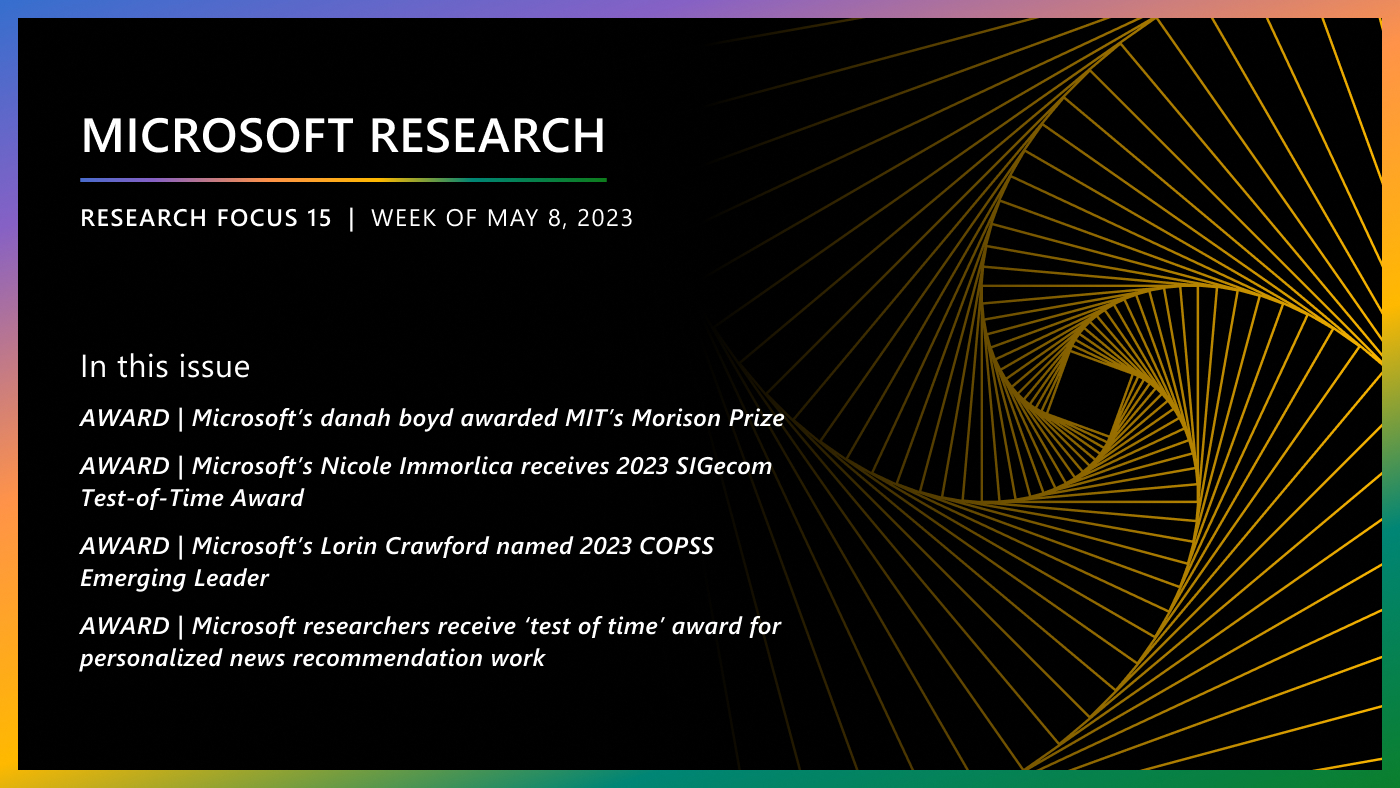Earlier this week Microsoft Research Montreal celebrated the International Day of Women and Girls in STEM (opens in new tab) (science, technology, engineering and mathematics) with a one-day symposium: I Chose STEM (opens in new tab).
More than 200 Canadian STEM students and research community stakeholders joined Microsoft Research for inspirational keynotes, workshops and dynamic conversations that explored careers in research and the future of women in research. In the words of Microsoft Research Technical Fellow and Managing Research Director Jennifer Chayes, “It’s very important for us to share our stories.”

(opens in new tab) Jennifer Chayes, I Chose STEM, Montreal, February 12, 2018.
Spotlight: Blog post
Eureka: Evaluating and understanding progress in AI
How can we rigorously evaluate and understand state-of-the-art progress in AI? Eureka is an open-source framework for standardizing evaluations of large foundation models, beyond single-score reporting and rankings. Learn more about the extended findings.
One of the biggest takeaways from the symposium was how important the role of mentors is to the success of women in STEM. That’s why we decided to livestream a behind-the-scenes conversation with a few of our keynote speakers to share the action with all women and girls in STEM who couldn’t be there in person.
Here’s our recap of the symposium:
Yoshua Bengio, head of the Montreal Institute of Learning Algorithms (MILA), announced new equality and diversity scholarships from MILA. These scholarships aim to promote equality and diversity in the scientific community in the field of artificial intelligence. Students who are members of underrepresented groups in AI are eligible to apply. A yearly $100,000 fund has been set aside for these renewable scholarships, which will help support graduate students enrolled in research and professional programs, as well as visiting interns.

(opens in new tab) Yoshua Bengio, I Chose STEM, Montreal, February 12, 2018
Canada’s Parliamentary Secretary for Science, Kate Young, represented Minister of Science Kirsty Duncan and spoke about the government of Canada’s campaign to encourage girls and women across Canada to #ChooseScience. “Our dream is for women’s voices to be heard and valued equally in the world of science, technology, engineering and math,” She said.

(opens in new tab) Parliamentary Secretary for Science Kate Young, I Chose STEM, Montreal, February 12, 2018
Fanny Eugène, Equity, Diversity and Inclusion Advisor at Fonds de Recherche du Québec, discussed Québec’s goal to encourage more girls to enter STEM studies. She also talked about the importance of role models for girls in STEM.

(opens in new tab) Fanny Eugène, I Chose STEM, Montreal, February 12, 2018
Dr. Mona Nemer, Canada’s Chief Science Advisor, shared her journey as a woman in science. “Having a female role model had the most impact on my personal and professional life,” she said.

(opens in new tab) Canada’s Chief Science Advisor, Mona Nemer, I Chose STEM, Montreal, February 12, 2018
In the afternoon, attendees were inspired by listening to the unique journeys in STEM taken by Layla El Asri from Microsoft Research Montreal, Adriana Romero from Facebook AI Research and Sara Sabour from Google Brain.

Layla El Asri, I Chose STEM, Montreal, February 12, 2018

Adriana Romero, I Chose STEM, Montreal, February 12, 2018

(opens in new tab) Sara Sabour, I Chose STEM, Montreal, February 12, 2018
I Chose STEM was an amazing opportunity to recognize, celebrate and learn from those who have chosen STEM, as well as a time to commit to greater investments in science, technology, engineering and math education for all women and girls. When we encourage girls to pursue STEM, we double the potential to solve problems. If they stay in STEM, they could be the ones to change the world.
Event Photos:
































